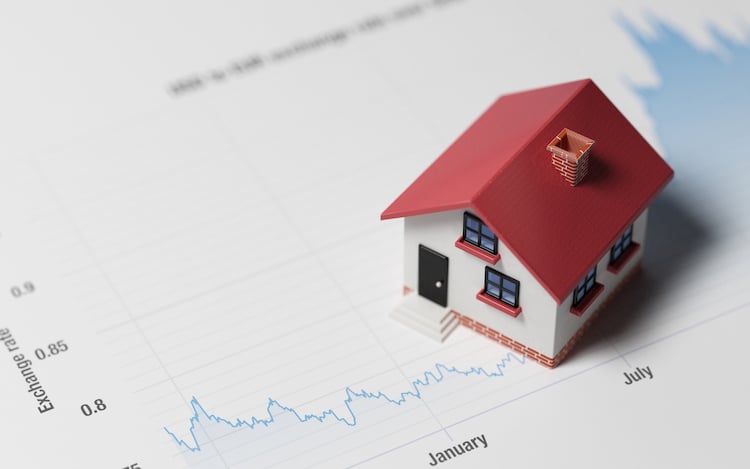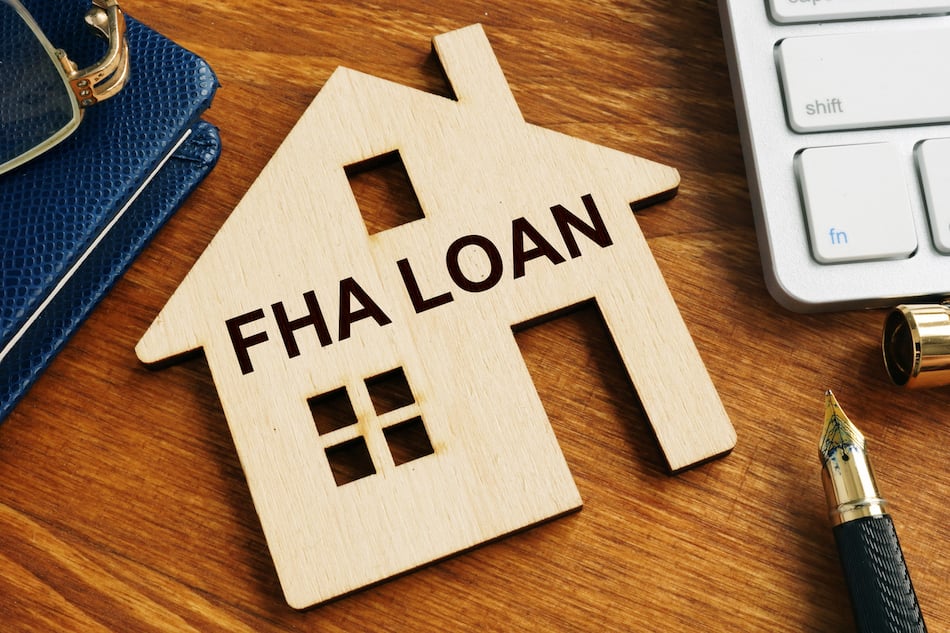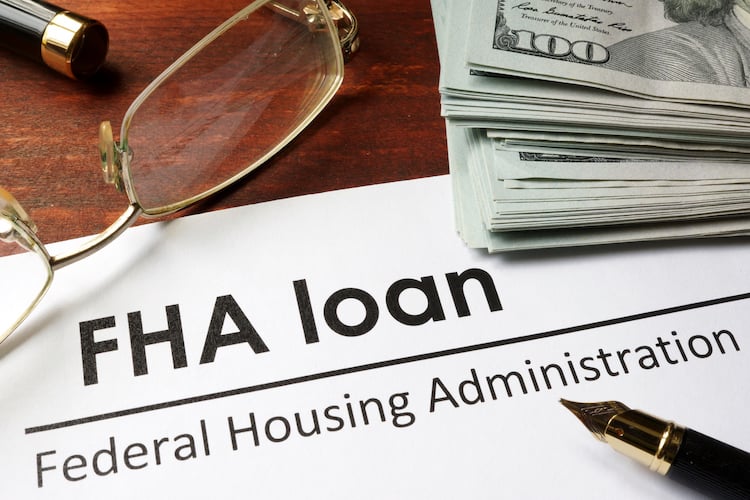Real estate investors often use financing to acquire an investment property to generate recurring rental income and earn appreciation over the long term.
Of the various loan programs available, a common question among real estate investors is whether an FHA loan with low down payment requirements and credit score requirements can be used to purchase a rental property.
In this article, we’ll help answer that question by explaining how to qualify for an FHA loan, the different types of single-family FHA loan programs available, and how an investor might use an FHA loan for investment property.
Key takeaways
- An FHA loan is originated by a traditional lender like a bank or credit union and backed by the Federal Housing Administration.
- A borrower may qualify for 3.5% down payment on an FHA loan with a minimum credit score of 580.
- FHA loans require a borrower to move into a home within 60 days of closing and occupy the home as a primary residence for the first 12 months.
- FHA loan programs include the basic 203(b) home mortgage loan and the FHA 203(k) rehabilitation mortgage.
What is an FHA loan?
An FHA loan is a mortgage backed by the Federal Housing Administration. FHA mortgage loans may be a good option for borrowers with a low credit score or limited money for a down payment. It’s also a popular option for first-time homebuyers.
There are several important differences between an FHA loan and a conventional loan issued by a bank or credit union that is not backed by a government agency:
- Down payment as low as 3.5% of the property purchase price.
- Credit score requirement is a minimum of 580 for a down payment of 3.5%.
- However, if a borrower makes a down payment of 10%, a credit score may be as low as 500 to qualify.
- Interest rate on an FHA loan may be 0.15% to 0.20% higher than the interest rate on a conventional loan.
- Mortgage insurance is required for the entire loan term if the down payment is less than 10%, and may include a one-time up-front premium plus a monthly insurance payment.
- Closing costs with an FHA loan may be partially financed and included as part of the monthly mortgage payment.
Can an FHA loan be used for investment property?
While FHA loans are not intended for buyers who wish to finance an investment property, there are several ways an investor may be able to use an FHA loan to purchase a rental property.
1. Primary residence for 12 monthsThe FHA requires that a borrower move into a home within 60 days of closing and occupy a home as a primary residence for a minimum of 12 months. In some cases, an investor may use an FHA loan to purchase a single-family home to live in as a primary for at least 12 months, then turn the home into a single-family rental after the first year.
FHA loans have special provisions that may allow a borrower to relocate due to job reasons or a growing family, and use an existing home as a rental property.
2. Purchase a small multifamily propertyAn FHA loan may also be used to purchase a small multifamily property with 2-4 units. The same primary residence requirements apply, so an investor would need to live in one of the units while renting the other units out.
Potential rental income will help to pay for the mortgage and the cost of operating the rental property. After one year has elapsed, an investor may move out and use the duplex, triplex, or fourplex completely as a rental property with FHA financing.
3. FHA streamline refinanceStreamline refinancing refers to the refinance of an existing FHA-insured mortgage loan. The word “streamline” is used because there is generally much less documentation involved, according to HUD, although a borrower may still expect to pay the cost to refinance the loan. An FHA loan may be refinanced with another FHA loan, even if a borrower no longer uses the home as a primary residence.
Different types of FHA loans
Many people are surprised to learn that there are a variety of mortgage loan programs backed by the FHA. Some of the most popular single-family FHA insured mortgage programs include:
Basic FHA home mortgage loan 203(b)
The loan is intended for a borrower who wishes to purchase or refinance a primary residence. An FHA 203(b) home loan is funded by a lending institution such as a bank or credit union and insured by HUD.
To be eligible for a Basic home mortgage loan 203(b) a borrower must:
- Meet standard FHA credit qualifications.
- Approximately 96.5% of the purchase price may be financed, plus the upfront mortgage insurance premium.
- Eligible properties are 1-4 unit structures.
Adjustable rate FHA mortgages
An adjustable rate mortgage (ARM) has an interest rate that periodically changes over the term of the loan. The initial interest rate of an ARM is usually lower than a fixed rate mortgage, making an adjustable rate FHA mortgage a potentially good option for borrowers who plan on holding the home for a short period of time before selling or refinancing.
Adjustable rate FHA mortgage options include:
- 1- and 3-year ARMs that may increase by 1% after the beginning fixed interest rate period and by 5% over the life of the loan.
- 5-year ARM with an interest rate that may increase by 1% annually and 5% over the life of the loan, or by 2% annually and 6% over the life of the loan.
- 7- and 10-year ARMs may only increase by 2% annually after the beginning fixed interest rate period and by 6% over the life of the loan.
Energy efficient FHA mortgages (EEM)
Energy efficient mortgages (EEMs) backed by the FHA are designed to help a borrower finance energy saving improvements and renewable energy systems. Improvements made with an EEM help to make home operating costs lower and generate more potential income.
To qualify for an EEM, a borrower must obtain a home energy assessment to identify energy efficient opportunities and the cost-effectiveness of the improvements.
Rehabilitation FHA mortgage 203(k)
The 203(k) rehab program allows a borrower to finance the purchase and cost of rehabilitating a home using a single mortgage, or to finance the rehab of an existing home.
Short-term loans such as a HELOC or hard-money loan typically have higher interest rates. However, a 203(k) is a single, long-term fixed or adjustable interest rate loan used to finance both the acquisition and improvement of a property.
Eligible property rehabilitation activities that qualify for an FHA 203(k) loan include:
- Structural alterations such as adding additional square footage to a home.
- Eliminating health and safety hazards, which are sometimes found when a previous owner is unable to maintain a property.
- Reconditioning or replacing mechanical systems such as plumbing and electric to meet local building codes.
- Adding or replacing floor treatments, roofing and gutters, and making the property accessible for a disabled person.
- Major landscape work and site improvements, such as installing a driveway or building a fence.
Title I home improvements FHA mortgage
A Title I home improvement loan is insured by HUD and issued by a private lender, such as a bank of credit union. Improvements must substantially protect or improve the livability or utility of the property, and a Title I loan may be used in conjunction with a 203(k) rehab loan.
To qualify for a Title I home improvement loan, a property must be occupied for at least 90 days prior to applying for the loan. Interest rates are fixed based on the most common market rate in a specific market, and loan amounts over $7,500 must be secured by a mortgage on deed of trust on the property.

Things to consider before using an FHA loan for an investment property
One of the biggest advantages to using an FHA loan for an investment property is a low down payment of 3.5%. However, the tradeoff for making a small down payment is having to pay an upfront mortgage insurance premium (MIP) plus monthly mortgage insurance over the life of the loan.
The FHA upfront mortgage insurance premium costs 1.75% of the loan amount, which means the MIP on a $150,000 single-family home is $2,625. The MIP may be paid at closing, or financed over the life of the loan.
The annual insurance premium ranges from 0.45% to 1.05% of the mortgage amount and is paid monthly. So, the monthly MIP on a $150,000 home would range between $56.25 and $131.25 per month, in addition to the monthly mortgage payment of principal, interest, property taxes, and homeowners insurance.
The MIP annual insurance premium percentage may vary based on the down payment amount and loan repayment term. Unlike the private mortgage insurance (PMI) on a conventional loan that is removed when a borrower has 20% equity in a home, MIP remains for the life of the loan.
Some borrowers acquire a home as an owner-occupant with a low down payment FHA loan, find a tenant and turn it into a rental property, then refinance the loan at a later date to eliminate the mortgage insurance. Once the equity in a home exceeds 20%, a borrower may be able to eventually refinance to a conventional loan and use any accrued equity to make a down payment of 20% or more.
Wrapping up
Real estate investors with a low credit score or a small amount of cash on hand may find an FHA loan to be an attractive financing option. After living in the property for just 12 months, a borrower may be able to turn the home into a rental by relocating due to job requirements or the need for a larger home.
While using an FHA loan for a real estate investment does have potential benefits, an investor may wish to look closely at both the advantages and disadvantages before applying for a loan backed by the FHA to purchase investment property.











